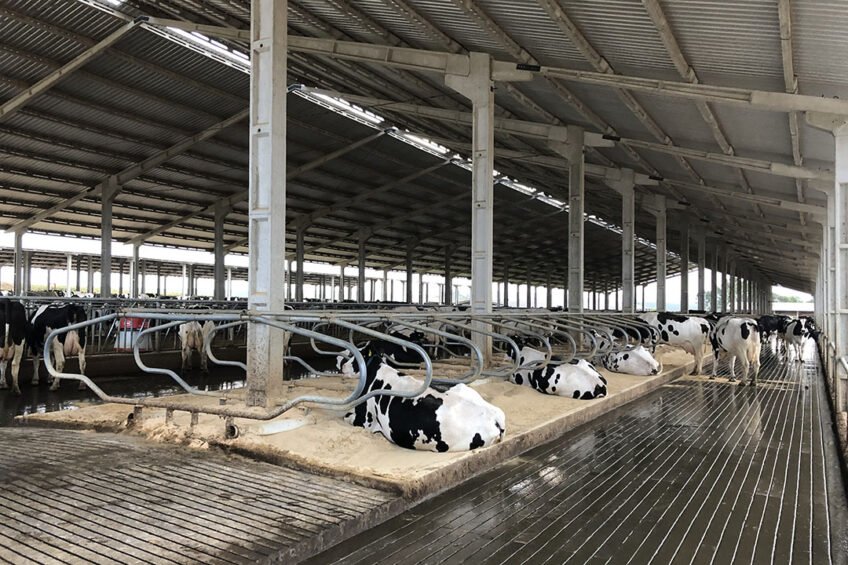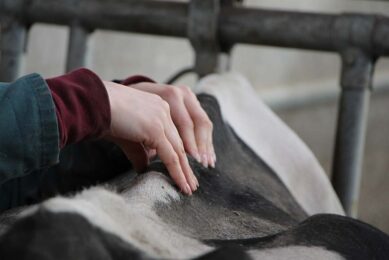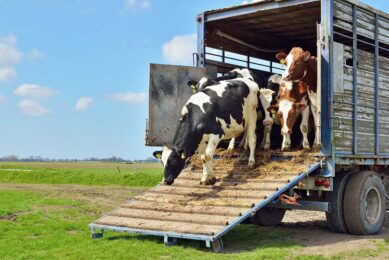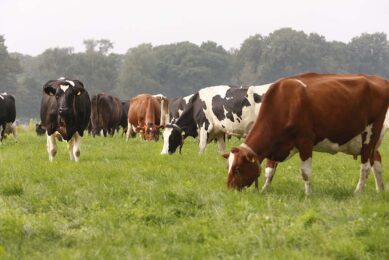Farm report: Leading Brazilian dairy expands to 1,000 cows

At first glance, it could be a rural German town. But Witmarsum Colony is actually located in Brazil, founded over 60 years ago by German immigrants in the state of Santa Catharina.
It is here that Marcos Epp, whose grandmother was among those original immigrants, runs one of Brazil’s largest dairy farms, milking 1,000 cows and working with his father Marvin (77), who is responsible for growing the crops on their 1,100 hectares.

Expansion: typical for Brazil
It’s a far cry from the 15 cows Marcos’ parents started with when they began farming there half a century ago. The latest expansion doubled the herd to its current size and Mr Epp is finishing construction on the last of 3 new dairy barns and a state of the art manure management system. His expansion plans are typical of many Brazilian dairy farmers.
According to a recent survey of Brazil’s top 100 dairy producers by independent research firm MilkPoint, 90% of respondents plan on expanding their operations in the next 3 years. That’s because unlike many other Brazilian agriculture sectors like crops, livestock and poultry, dairy focuses on the domestic market, with approximately 98% of production staying at home. “Consumption is 100% dependent on the economy and has been rising the last 10 years, although it came down during the economic crisis,” said João Salgado, product manager with Delaval in Brazil. “We are a huge internal consumption market, and it’s a big opportunity for us.” Frisia, one of 3 large co-operatives in the state, reports milk production rising from approximately 140 million litres in 2013 to over 234 million in 2018, with double digit increases in 2017 and 2018. During the same time, its number of dairy farm members remained stable at 277.

Financing the expansion
On Mr Epp’s Regia Farm, almost all livestock is housed indoors, and even pastured cattle are bunk fed. That’s due to a lack of available pasture land as well as a highly variable climate that can range from 32 to 34 degrees Celcius in summer to below zero in the winter. Each of the 3 new dairy barns is 32m wide by 125 metres long and holds 320 cows bedded on sand; the older dairy barns now house young stock. “3 years ago, we started a production plan for 1,000 cows. With this goal, we planned the new barns plus a system for manure management so we can sort and separate the sand and solids,” said Mr Epp. Adding the sand has really boosted cow comfort. To make the barns last longer, he chose concrete instead of steel construction, even though concrete is about 10% more expensive. Overall, he estimates the expansion cost approximately 6,000 Brazilian Reals per cow (€ 1375), of which he’s financing half through a 10-year bank loan at 8.5% interest with no repayments for the first 3 years of the loan. The remaining funds are borrowed from his father. “We can pay it, but we have a big part (of equity) already; if I had started from zero, it would not be possible,” he said. “When we built, we did calculations on how many cows we could milk on our land.”
Profitability
Dairy is profitable in Brazil currently, which helps. Mr Epp’s cost of production is 1.35 BRL/litre (€ 0.31) and the average milk price this year is 1.60 BRL (€ 0.37).
Holding on to good workers
Mr Epp currently employs 38 people, and works hard to entice them to stay. Compensation includes a salary of 2,500 BRL (€ 575) per month (higher than the average 1,500 – 2,000 monthly salary in the region), housing, a 13th monthly salary, 30 days’ paid annual leave – and all the milk they can drink. “It is hard to get good workers, but we’ve had a stable labour situation the last 2 to 3 years,” he said, estimating his total per worker cost is approximately 4,000 BRL (€ 920) per month. “But unemployment is higher in Brazil today, so that makes people stay.”

Focus on automation
Cows are milked 3 times daily in a 32-head DeLaval PR3100 rotary parlour with each milking lasting about 6 hours. The farm produces 37,000 litres of milk per day, far above the 19,238 litres daily averaged by Paranà’s best dairy farmers. Cows are fed a ration twice daily that includes corn and grass silage, corn, soybean meal, cotton seed, soy hulls and brewers’ grains. Automation features heavily in Mr Epp’s herd, including an automatic gate system that sorts cattle by ear tags, a heat and disease detection collar with activity meter that collects data and sends notifications if it senses anything out of the ordinary and in-collar microphones that monitor rumination.
Mr Epp is also one of many farmers optimistic about Brazil’s recent change in government that saw President Jair Bolsonaro sweep to power with a get-tough-on-crime and get-the-economy-running again message.
“We are hopeful with this new government, but how it plays out remains to be seen. Unfortunately this is a culture that won’t change overnight; changing corruption will take several years,” he says. “At least now we have hope. A year ago we didn’t even have hope.”
Herd stats
- Cows: 1,000 Holsteins
- Average longevity: 3 lactations
- Average production: 40 litres/cow/day
- Butter fat: 3.75%
- Protein: 3.20%
- Somatic cell count: 135,000
Join 13,000+ subscribers
Subscribe to our newsletter to stay updated about all the need-to-know content in the dairy sector, two times a week.












